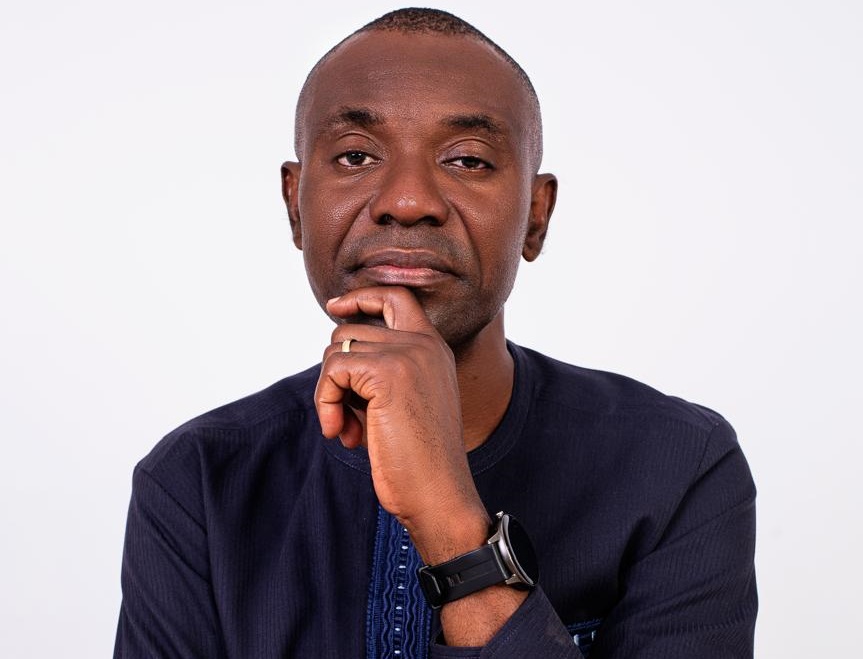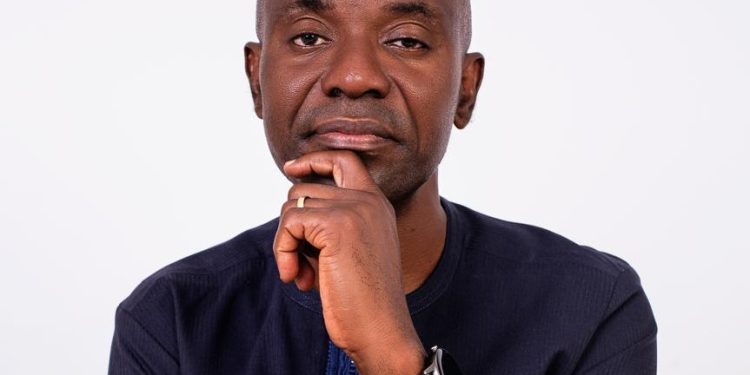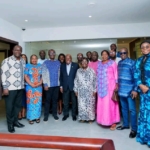What is Kaakamotobi?
With the end of the long spell of military intervention in the body politic of Ghana and the onset of democratisation, one would have thought that certain mindsets and occurrences associated with military regimes would have ceased. However, recent developments by operatives of the National Security Council (Secretariat) and Bureau for National Investigations (BNI) have made me think long and hard about Kaakaamotobi and the concept of legitimacy.
The actions of these operatives have implications for the Security Sector Governance and Reform (SSG/R) in several senses, but I will focus on the issue of legitimacy. Moreover, I prefer to use the old name BNI (rather than National Investigation Bureau) because BNI is value-laden and evokes a particular genre of history (good, bad and ugly).
To begin with, kindly allow me a moment to explain a highly complex phenomenon that is called Kaakamotobi. This tour d’horizon is important given the central place of the concept of Kaakamotobi in this piece. At an elementary level, Kaakaamotobi means a masquerade. A masquerade is the closest English word I can find to explain Kaakamotobi.
Masquerades are highly diverse, reflecting different sociocultural and religious backgrounds, historical events, and so on. Masquerades are sometimes designed to project fear, intimidate a particular audience/public, and communicate a sense of mystery and mysticism. Chinua Achebe conveys this idea vividly in his novel ‘Things Fall Apart’ when Okonkwo assumes a different persona during the parade of egwugwu masquerades, who represent fearful ancestral spirits and village justice.
When I was a child, Kaakamotobi symbolised the embodiment of dread, mysticism and a kaakai (another local phenomenon) representing something that could not be trusted or dialogued with. We didn’t like it koraa. In the circumstances, Kaakaamotobi lacked the basic legitimacy as a friend or trusted partner in any endeavour or dialogue. It is against this background and experience that I situate my thoughts within the hybrid concept of Kaakamotobi and legitimacy.
Concerning recent developments involving security and intelligence operatives.
Reflecting on some recent developments (for example, the arrest of some former government officials by security and intelligence operatives wearing face masks/Kaakamotobi), I have capitulated to the invitational edge to analyse my thoughts through the discursive hybrid framework of legitimacy (and Kaakamotobi).
There are several reasons why I adopted this conceptual lens of legitimacy, but, due to space, I will outline only three here: First, legitimacy is ‘now an established concept in criminological analysis’ (Tankebe and Liebling, 2013: 1), and is vital for ‘achieving law-abiding behaviour and cooperation from citizens’ (Bottoms and Tankebe, 2012).
Second, and more broadly, the legitimacy of the players within the criminal justice system is a fundamental barometer for assessing the democratic credentials of any liberal democratic state, like Ghana.
Lastly, how the citizens view the legitimacy of the players within the criminal justice system, in particular, and the security sector more broadly, is vital in shaping oversight and accountability and other necessary reforms required to deepen the principles of democratic governance.
This is because the strength or weakness of the oversight and other accountability mechanisms has implications for human rights, the rule of law and other vital aspects of democratic governance, such as Security Sector Governance/Reform (SSG/R). Good oversight and accountability mechanisms enhance legitimacy.
After all, legitimate “power which is acknowledged as rightful by relevant agents, who include power-holders and their staff, those subject to the power and third parties whose support or recognition may help to confirm it” (Beetham, 2013, p. 19, emphasis in original).

But how do I use legitimacy in this context?
Legitimacy as a critical concept in security sector governance and reform.
From the perspective of recent criminological thought, legitimacy is a form of ongoing dialogue between the citizens (the audience) and the security and intelligence institutions and securocrats (the powerholders).
This is an opportunity to demonstrate where and how scholarship meets practice at a vital intersection and with significant traction on the ground. Tom Tyler (1990), through his pathbreaking work “Why People Obey the Law”, ignited academic interest in legitimacy through his examination of procedural justice within the criminal justice system. He shows that citizens often obey the law due to normative factors, rather than because of its instrumental value.
Bottoms and Tankebe (2009) have extended this issue a step further in their work “Beyond Procedural Justice.” They argue that legitimacy is built through a dialogue between the power holder (government officials) and the audience (citizens).
For Bottom and Tankebe (2009), ‘legitimacy is a dialogue, involving claims to legitimacy by the power holders and responses by the audience’, within the remit of certain shared beliefs, values norms, and so on. Thus, these authors take, as their point of departure (from Tyler), the fact that legitimacy is accomplished through a dialogue between the power holder and the audience.
Their argument engenders several questions relevant to certain current developments in the security and intelligence space in Ghana, viz: (a) How does history shape and affect the legitimacy of the security and intelligence institutions? (b) How might certain recent actions risk undermining the power holders’ legitimacy? and lastly (c) How can we progressively address the issue of the legitimacy of the security and intelligence institutions?
a) How does history shape and affect the legitimacy of the security and intelligence institutions?
Only a few scholars (including Eboe Hutchful, Ben Kunbour, Festus Aboage, Kwesi Aning, Humphrey Agyekum and Stephen Addea) have systematically studied the history of Ghana Armed Forces and even fewer Ghana’s intelligence community. For instance, Eboe Hutchful has written extensively on the Ghana Armed Forces and the governance of Ghana’s security sector.
His elaborative works have indexed how the security sector has both evolved and retained certain fundamental features. Viewed from the standpoint of legitimacy, Hutchful’s annotations (although not critiqued from the perspective of legitimacy) raise certain concerns about legitimacy within the security sector.
For me, some of the features and orientations of the Ghanaian security and intelligence institutions give the impression that, even at the institutional level, they seem to believe that being associated with some kind of brutalism and fear (i.e., Kaakaamotobi) is a good hallmark of a real security (and, sometimes, intelligence) organisation.
As some officers comment, ‘We need to discipline these dozing civilians.’ Among security officers in Ghana, discipline in such a context includes physical violence of grotesque proportions; something they will not do on peacekeeping operations. In other words, different notions of human value.
Certainly, this mindset, as well as the institutional logic and culture, can be partly traced back to colonialism and the strategy of forcing the colonised into submission to plunder their human and natural resources.
This mindset, along with the posturing of the security and intelligence organisations, was variously reinforced during military regimes, creating a fear-based relationship between the average Ghanaian and the security and intelligence organisations.
In my view, however, what we need is not fear, but a mutually respectful relationship between the power-holders (officials/officers) and the audience (citizens). In recent times, we have witnessed assaults on civilians by military officers. Police officers have also faced abuse at the hands of military officers, often with very few, or even no, meaningful consequences.
Sadly, and in some instances, political office holders and the military high command have justified these grotesque human rights violations against civilians. Perpetrators are hardly held to account in ways that will engender public trust that security institutions can hold their men to account.
An independent complaints commission is a way to deal effectively with such issues. However, for some strange reason(s), the need for an independent complaints commission has not materialised. Yet, setting up a good independent complaints commission is one way of building public trust and confidence (i.e. audience legitimacy).
Johnny Kwadjo, a former Deputy National Security Coordinator under Rawlings, has written an insightful piece on the fissures within the BNI that attended its transition from the extended military regime to liberal democracy in 1992. As an insider and someone close to the debate and discussions around this reform, his piece is a must-read. He paints a rather revealing picture of the tensions within the BNI as it sought to reform itself in keeping with the change.
Jonney Kwadjo’s piece on the BNI, like the various writings of Hutchful, presents a nuanced reading of the intelligence community at the dawn of the fourth republic by highlighting the diverse orientations and tensions within the BNI as it sought to reform itself.
He describes the tension as one between the ‘old school’ and ‘new school’ orientations and how this fissure, to varying degrees, has shaped the agency’s later posturing (but largely out of sight of the citizens).
In a way, Kwadjo, examination of these issues drew crucial attention to how the BNI could either undermine or enhance its legitimacy based on how it reformed in the fourth republic. Kwadjo’s argument, which remains largely relevant, was that meaningful reform could be achieved through engaging in a meaningful dialogue with the relevant players, both within and outside the BNI.
The concept of viewing legitimacy as a dialogue between a power holder (state official) and the audience (the people) is so central to my opinion that I have kept harping on about it. So, in a way, Kwadjo had hinted at this.
In an environment where the state institutions suffer from a significant and general lack of trust and confidence (i.e., a legitimacy deficit – see, for instance, various episodes of Afrobarometer), the last thing any state institution wishes to do is take an action that risks undermining its already thin legitimacy (in some cases, even further).
Whether regarding security or the intelligence community, the character of fear, kaakamotobi, looms large. Yet, this posture of Kaakamotobi does not help to enhance legitimacy in the face of a legitimacy deficit or legitimacy kwashiorkor. People who have been victims or have been kaakamotobied will attest to this character among certain security and intelligence operatives.
Written by Emmanuel Sowatey (PhD, Cantab, from the Institute of Criminology, Faculty of Law, University of Cambridge).
Email: [email protected]/ emmanuel.sowatey@gmailcom
DISCLAIMER: The Views, Comments, Opinions, Contributions and Statements made by Readers and Contributors on this platform do not necessarily represent the views or policy of Multimedia Group Limited.
DISCLAIMER: The Views, Comments, Opinions, Contributions and Statements made by Readers and Contributors on this platform do not necessarily represent the views or policy of Multimedia Group Limited.
- President Commissions 36.5 Million Dollars Hospital In The Tain District
- You Will Not Go Free For Killing An Hard Working MP – Akufo-Addo To MP’s Killer
- I Will Lead You To Victory – Ato Forson Assures NDC Supporters
Visit Our Social Media for More



